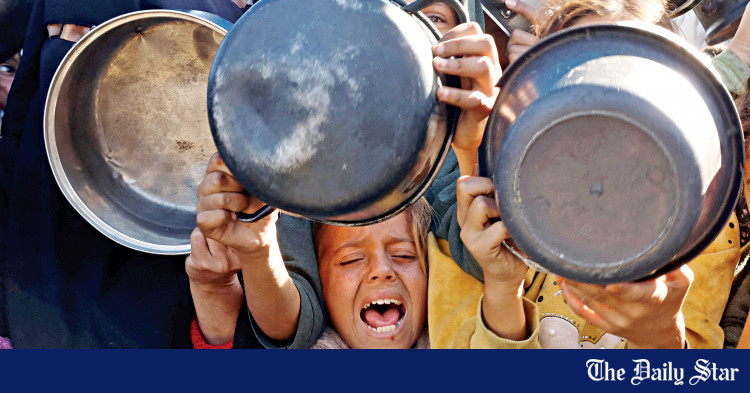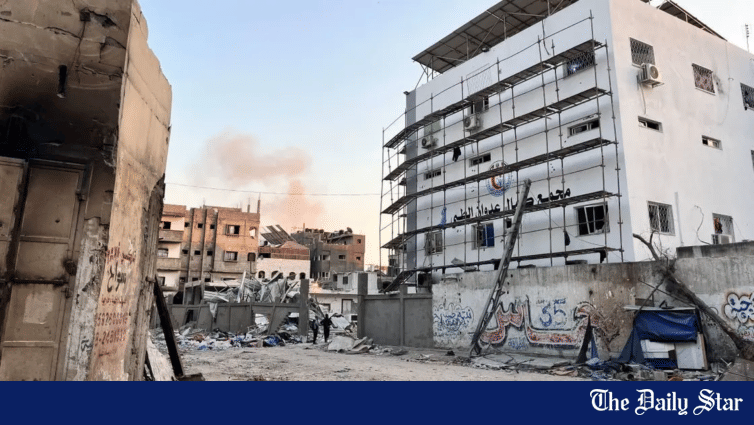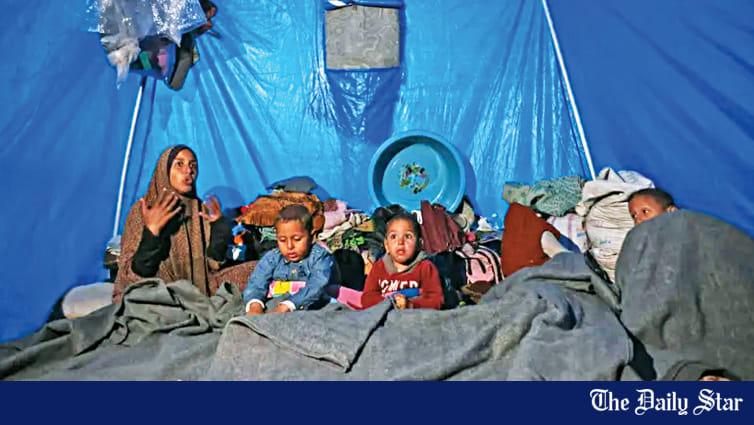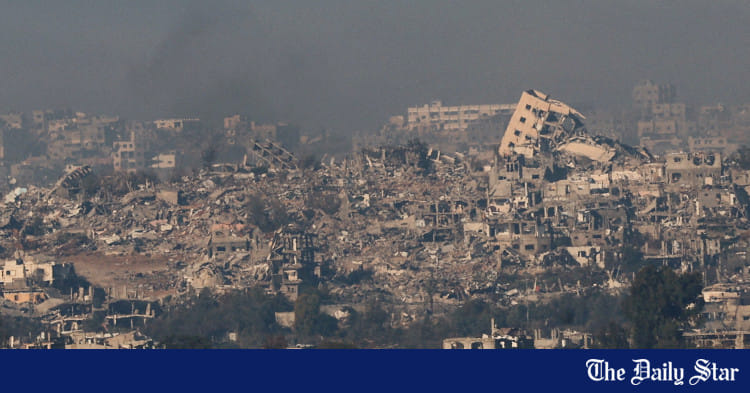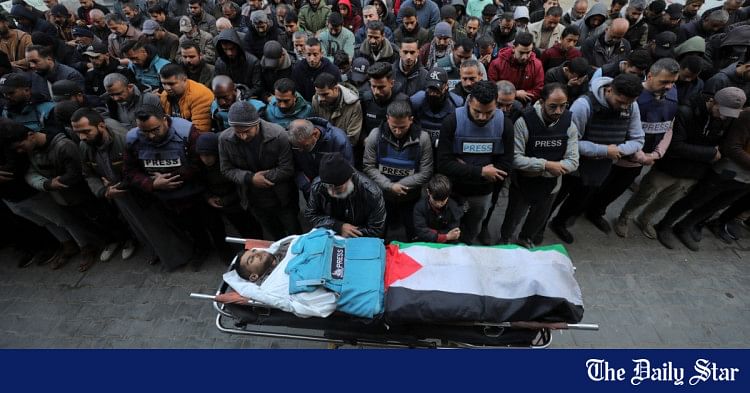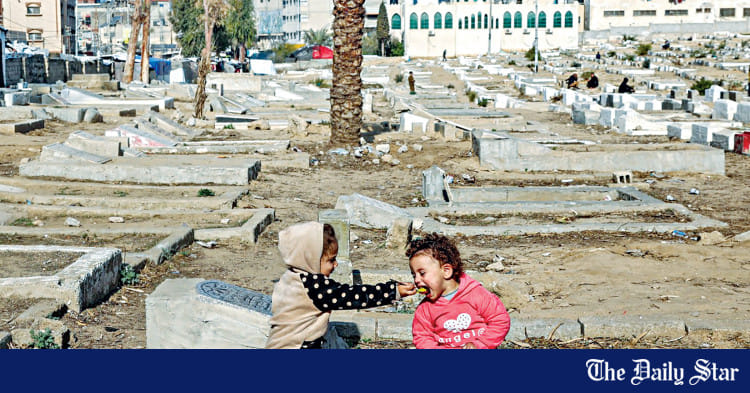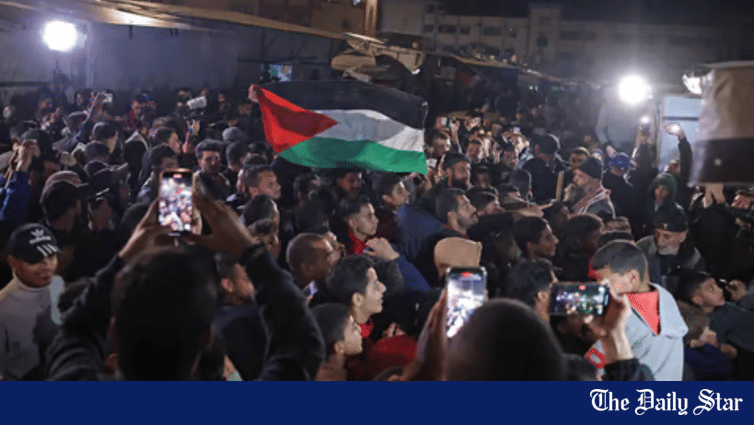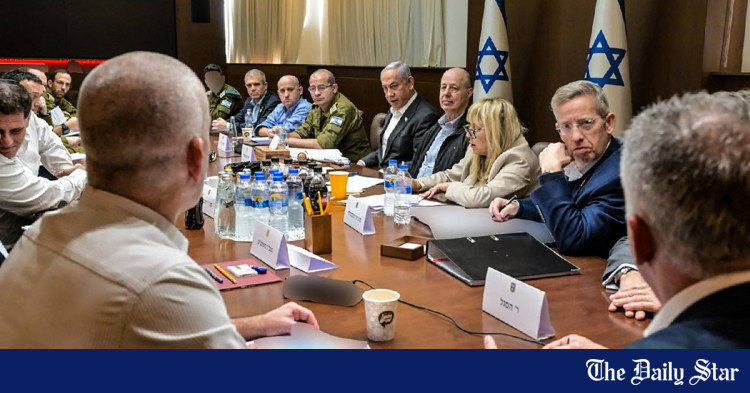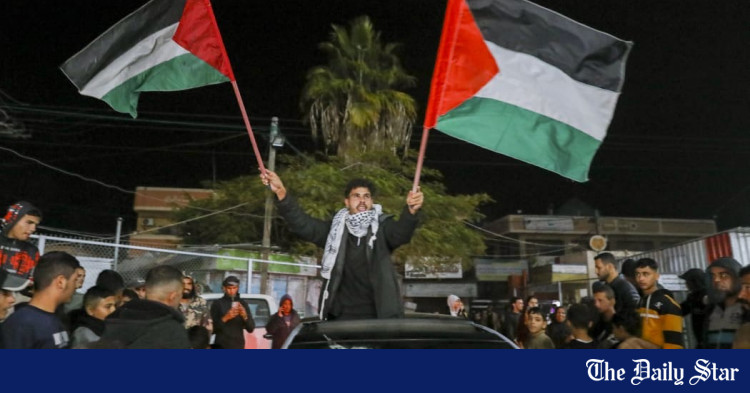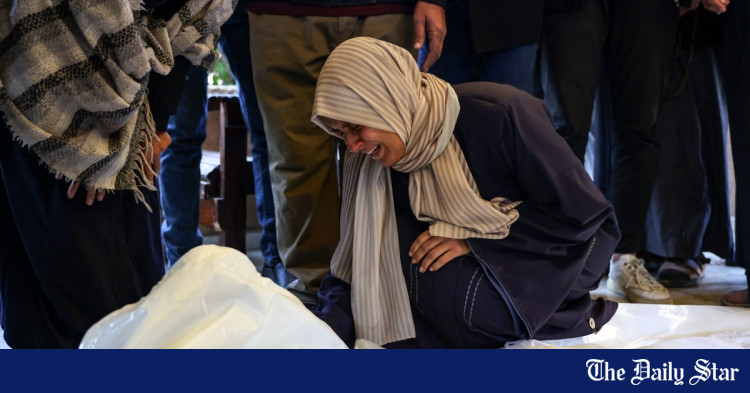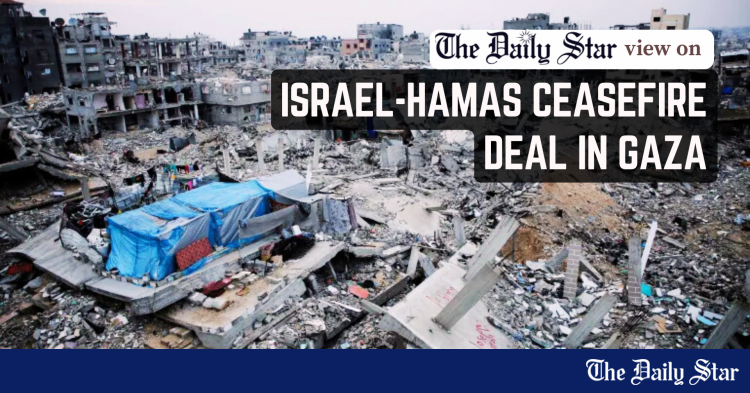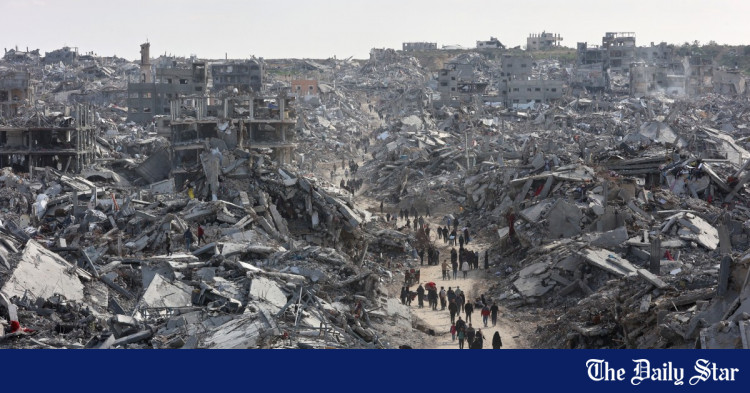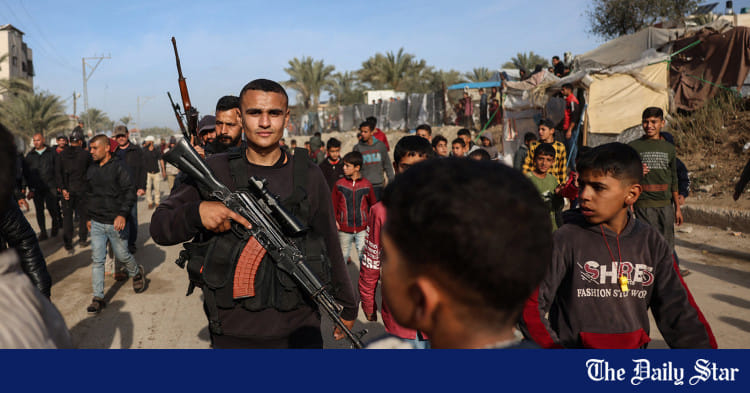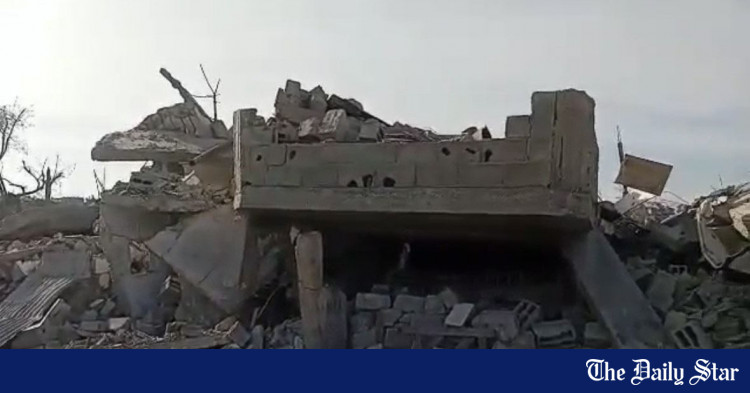Observing the international day of solidarity with the Palestinian people
Muhammad Zamir
Published :
Dec 09, 2024 00:38
Updated :
Dec 09, 2024 00:38
On November 29, the world observed the International Day of Solidarity with the Palestinian People-- a day established by the UN in 1977 to emphasise global support for Palestinian rights, including self-determination, independence and a just resolution to the issue of Palestinian refugees. The interesting thing is that the date was chosen as it marked the anniversary of the UN General Assembly's adoption of Resolution 181 in 1947, which proposed the partition of Palestine into separate Jewish and Arab states.
This year, amidst Israel's continuing war on Gaza, fifteen countries - Armenia, Slovenia, Ireland, Norway, Spain, the Bahamas, Trinidad and Tobago, Jamaica, Barbados, Saint Kitts and Nevis, Colombia, Saint Lucia, Holy See, Sweden and Haiti - have formally recognised the State of Palestine, reflecting growing international support for this entity.
This means that now, at least 146 UN member states recognise the State of Palestine, as does the Holy See, the governing body of the Catholic Church and Vatican City, which holds UN observer status.
Recognising Palestine strengthens its global standing, improves its capacity to hold Israeli authorities accountable for the occupation, and pressures Western powers to act on the two-state solution. This represents the fact that the State of Palestine is recognised as a sovereign nation by 146 countries, representing 75 per cent of United Nations Member States.
At this point one needs to recall the brief history of Palestinian recognition.
On November 15, 1988, in the early years of the first Intifada, Yasser Arafat, Chairman of the Palestine Liberation Organisation, proclaimed Palestine as an independent State with Jerusalem as its capital. Following the announcement, more than 80 countries recognised Palestine as an independent State, with strong support from the Global South, including nations in Africa, Asia, Latin America and the Arab world. Most of the European countries that recognised Palestine during this time, also did so as part of the former Soviet bloc.
A few years later, on September 13, 1993, the first direct talks between Palestinians and Israelis led to the signing of the Oslo Accords, which were supposed to bring about Palestinian self-determination in the form of a Palestinian state alongside Israel. This was never achieved.
It would be useful at this point to recall the Oslo Accords. This was the first direct Palestinian-Israeli peace agreement. This measure was meant to initiate future peace talks with the desired goal of a two-State solution, which has unfortunately never been achieved.
The agreement was negotiated in Oslo, Norway, and signed at the White House in Washington, USA on September 13, 1993 between Yitzhak Rabin, Prime Minister of Israel and Yasser Arafat, Chairman of the PLO in the presence of US President Bill Clinton.
In the late 1980s and early 1990s, nearly 20 countries recognised Palestine, followed by 12 more between 2000 and 2010 - mostly from across Africa and South America. By 2011, all African countries, except for Eritrea and Cameroon, recognised Palestine.
In 2012, the General Assembly voted by an overwhelming majority (138 in favour, 9 against, 41 abstentions) agreed to change Palestine's status to "Nonmember Observer State", and in 2014, Sweden became the first country in Western Europe to recognise Palestine.
On May 22, 2024, in a positive gesture - against what was taking place in Gaza- Norway, Ireland and Spain, in succession, announced that they were recognising Palestine according to the pre-1967 borders with East Jerusalem as its capital. In response, Israel recalled its Ambassadors from the three European countries and promised to expand illegal settlements in the occupied West Bank as punishment.
On June 4, Slovenia became the latest European country to recognise a Palestinian State. Other European nations, Malta and Belgium, are also discussing whether and when to recognise Palestinian statehood.
Unfortunately, however, none of the G7 countries - Canada, France, Germany, Italy, Japan, the United Kingdom or the United States - have recognised Palestine.
Analyst Sumaya Mashrufa has correctly observed that the war that is currently being carried out by Israel with the support of some of its Western allies has spiraled, and appears to have seemingly merged into genocide. In this context, lands, as Edward Said once described, "lived on and owned by others," are stripped away under the guise of right, erasing histories etched into the soil. The denial from the West has also not unfortunately been accidental. It has been deliberate, woven into the fabric of imperial complicity. What is unfolding over more than two years is not chaos, but a design-a slow, systematic unmaking of a people.
Geo-strategists have noted that since October 7, 2023, nearly17,000 children have been killed, including 700 infants under the age of one, as reported by the UN. Such a scenario can only be described as an example of extermination. When 700 babies, still learning to crawl are killed before they can -how do you process that? Human rights activists have also referred to the pain being suffered by 17,000 childless mothers. One can imagine the suffering and grief they are going through being given the connotation by Israeli activists that all those killed (apparently including crawling babies), were deemed dangerous to an Israeli existence. Nothing demonstrates gross human rights violations more unambiguously than the reality of Palestinian women, stripped of their dignity and subjected to unimaginable horrors.
At this juncture question arises about what happened with the expected Western indignation over such decimation of human rights. Analyst Sumaya Mashrufa has correctly observed that these same Western voices, are however, swift to condemn and paint Muslim men as oppressors who apparently all cover their women in burqas. One can only note that when the perpetrators of violence do not fit the convenient Western narrative of barbarism, it is difficult for them to express their anger.
At this point, however, one also needs to condemn the manner in which Hamas carried out the initial attack on Israeli citizens that started this unfortunate war. Those guilty of these crimes need also to be taken to task through a legal process.
Sumaya Mashrufa has also observed that "I shouldn't have to seek the West's condemnation, nor wait for permission to call the deaths what they are-genocide! I shouldn't need anyone's approval to count my own loss. I can see with my own eyes that my mothers and brothers are gone. Yet this is the world we live in, where the veto-wielding powers must grant me the right to mourn my unbloomed sisters, my brothers who will never fulfill their potential".
Such an evolving scenario in Gaza leads one to also refer to the fourth report presented in March 2024 by Francesca Albanese, an international lawyer and expert in Middle Eastern human rights serving as the UN Special Rapporteur on Palestinian human rights since 2022, to the United Nations, titled, "Anatomy of a Genocide." Supported by three prominent Israeli scholars of genocide and the Holocaust-Professors Raz Segal, Amos Goldberg, and Omar Bartov-the report concluded that Israel is committing genocide. The existing challenge today lies not merely in acknowledging that genocide is taking place in Gaza and Lebanon but in proving it to a world that demands evidence while turning a blind eye to the unfolding atrocities.
Geo-strategists have correctly observed that simply cataloguing these acts as "crimes against humanity" is insufficient. Most of us have seen how such a description has now become more or less ineffective since 1949, long before the recent surge in violence. The current paradigm also includes what has been happening since 2017 in Myanmar with regard to more than 700,000 Rohingyas who had to flee across the border from the Rakhine Province and seek shelter in Bangladesh because they were Muslims. Their number has now grown to over 1.2 million.
Analyst Sumaya Mashrufa has also correctly described genocide as being "systemic, calculated, a machine of annihilation". It is also unfortunate that the names of leadership might change in some G7 countries but policies remain the same. Such a scenario urges one to point out that in the contemporary world national interest overrides any responsibility associated with human rights.
In this context, it has been touching how students from Jahangirnagar University and in different parts of Bangladesh have expressed their concern about what is happening not only in Gaza but in other parts forcibly occupied by Israel. The Palestinian flag has become a symbol of what needs to be respected.
One also has to understand that the United Nations with the principle of Veto power also continues to cast a long shadow over offences created through discrimination and contravention of international law. It is difficult to accept that in the contemporary world genocide and atrocities have become only statistics and nothing more.
Muhammad Zamir, a former Ambassador, is an analyst specialised in foreign affairs, right to information and good governance.









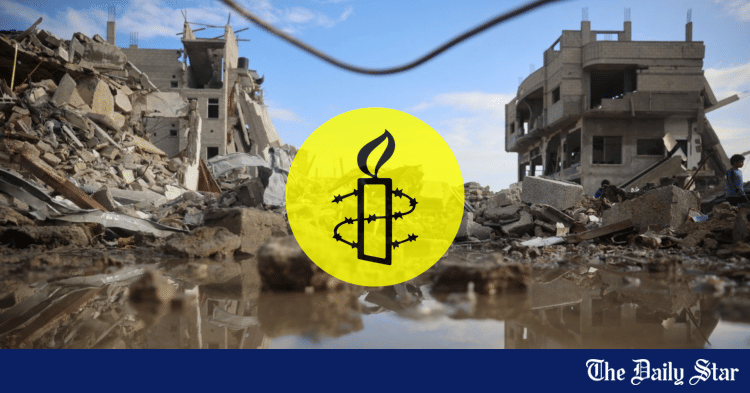







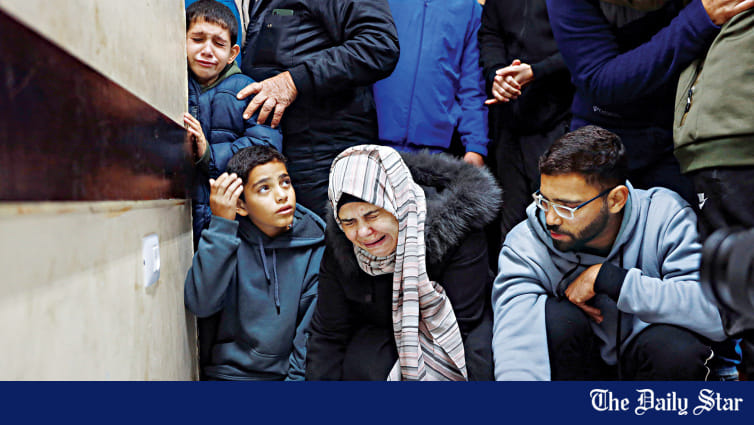








 She will love you more
She will love you more


